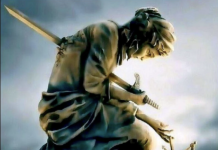THE CLAIM that the push for co-governance comes not from “ordinary” but “elite” Māori continues to gain ground. Yet another instance of the “divide and conquer” strategy – a favourite of colonisers throughout history – it is intended to cast those advocating co-governance as a privileged minority with little or nothing in common with the hundreds-of-thousands of Māori who do not have university degrees, do not receive six-figure salaries, are not fluent in te reo, and cannot recite their whakapapa beyond one or two generations.
The Māori who possess all these attributes, runs the argument, are the only people who will truly benefit from co-governance. They will be the ones sitting across the table from Pakeha politicians and bureaucrats, thrashing out the issues, arriving at a consensus, making the decisions. Such accountability as exists in this brave new administrative world will be, overwhelmingly, to people like themselves – well-educated, well-paid, well-connected. The Māori forester, or check-out operator, will be none the wiser – or the more empowered.
Where this argument falls down is in its overestimation of the size and influence of the Māori middle-class. In comparison to the Pakeha bourgeoisie, the Māori middle-class is tiny. A great many of today’s credentialled Māori are the first members of their whanau ever to receive a tertiary education. Only a handful of Māori families can look back at generation upon generation of forebears who graduated from university. The great professional families that occupy the upper-echelons of Pakeha society are still a rarity in Māori society.
As a consequence of the Māori middle-class’s small size, Māori leadership is drawn from a much broader cross-section of Māori society than is now the case in the Pakeha world. What propels a Māori leader forward is a demonstrated capacity to inspire, organise and achieve. To a far greater degree than is the case among Pakeha (with the possible exception of matters relating to organised sport) this gives rise to circumstances in which resourceful and eloquent working-class men and women can aspire to, and be given, important community leadership roles.
Those who have investigated existing co-governance structures (like Newsroom’s Jo Moir) will attest to this phenomenon. Where Pakeha would reach for the services of lawyers and accountants, Māori will call upon the wisdom and experience of men and women who have demonstrated a commitment to, and mastery of, the issues which co-governance is being called upon to resolve. Practical, not theoretical, knowledge is what counts.
And it seems to work – not least because it harks back to the sort of New Zealander that is fast disappearing from Pakeha society. The practical, reliable and, at a pinch, inspirational New Zealander who somehow managed to build a nation without the input of consultants, and without the need for a small army of communication specialists. The sort of Kiwi who, like Ed Hillary, promised to do a job – and did it. Whose word, once given, was never be broken. The sort of Kiwi who, these days, is more likely to be Māori than Pakeha.
To see this dynamic at work, take a look at the video recording made at Julian Batchelor’s Stop Co-Governance rally at Orewa. When those protesting against Batchelor’s ideas broke into a moving rendition of Wi Huata’s now famous Tutira Mai the elderly Pakeha, non-plussed, could think of no better response than to sing God Defend New Zealand – badly and in English. Quick as a flash, the protesters came back with the national anthem – in Māori, and, even more tellingly, in harmony.
That ragged, half-hearted, and horribly out-of-tune rendition of God Defend New Zealand by Batchelor’s elderly audience spoke volumes about where Aotearoa-New Zealand is going – and who is going to take it there. Not least because the Pakeha among the protesters sang Wi Huata’s song of unity as confidently as their Māori comrades – and the Māori version of the national anthem too. If sceptics want to know why co-governance will work – and work inspiringly – they need only look at that video.
Thinking about it, what emerges most clearly from Batchelor’s rallies is the sheer strength of the psychological projection going on. Māori are accused of being misled and mistreated by tribal elites and “Treatyists”. But, is it Māori misdeeds and misdirections they are reacting to, or are the emotions they struggle so hard not to recognise actually born of their own mistreatment at the hands of their own – Pakeha – elites? Because, if you’re looking for evidence a secretive and elite group of ideologically-driven politicians, bureaucrats, academics, businesspeople and journalists who banded together in a grand conspiracy to completely transform the greatest little country on Earth into a broken and divided nation utterly subjugated to the doctrines of Neoliberalism, then look no further – you’re soaking in it!
Democracy in New Zealand will not be saved by pitting Pakeha against Māori, but by joining together with every other citizen who still understands the meaning of working together to build something good that will last. Call that co-governance if you like, or call it something else – Kotahitanga perhaps. And, if you’re looking for a credo to build that sort of movement around, then you could do a lot worse than to start with Wi Huata’s:
Line up together, people
All of us, all of us.
Stand in rows, people
All of us, all of us.
Seek after knowledge
and love of others – everybody!
Be really virtuous
And stay united.
All of us, all of us.





“What binds us together.”
You sound a bit religious today…..
And that is OK.
Religion, from the Latin res + ligare. The thing that binds, allowing for grammar.
Literally.
Religion, from the Latin res +ligare, is the thing that binds.
“The fox knows many things, the hedgehog knows one big thing.”
Once the post-neoliberalists have defined what it is that we should aspire to will be the day that we can start our real journey into the future.
Literally.
Religion, from the Latin res +ligare, is the thing that binds.
And that matches the story of the fox and the hedgehog.
Figuratively speaking…
Literally.
Religion, from the Latin res +ligare, is the thing that binds.
I like the spirit, tenor and imagery in this post from Chris …
Great lyrics from Wi Huata to end it with.
To me this song “Steh Auf” represents a bit of what Chris has written about,,, because it shows Russians singing along in German in Moscow ,,,, and that this sort of interaction between Germans and Russians is far more good and natural than the insanity of war and conflict against each other.
The chorus/lyric ‘Steh Auf’ translates to ‘Get Up’ ,,,, and I think it’s a uniting call that all ordinary people everywhere would benefit from,,,, in so many different situations. https://youtu.be/CNAf1h4QEkY
Stand for something good ….
@ B Awakesy,
Not quite the same spirit, tenor or imagery though as another post in another part of the universe
https://www.bassettbrashandhide.com/post/chris-trotter-the-tribal-
A column against recent type, and refreshing.
COVID response really showed what a number of Iwi connected organisations are capable of in terms of looking after people, as did Cyclone Gabrielle with Marae open to all.
Are you talking about the Maori Only blockades on beach access?
Your access to public land and beaches is more likely blocked by the rich ,,,,
“John Spencer waged a 19-year battle to stop public access to the Stony Batter gun emplacement on his Waiheke Island farm, including barricading a public road.” https://www.stuff.co.nz/good-reads/8515361/Money-trail-leads-home-to-New-Zealand
” a public road on Waiheke which in 1992 John Spencer barricaded under mounds of earth and effectively appropriated ,,,, ” ,,,, ” aggrieved (Maori) land claimants have never to my knowledge gone as far as barricading and seizing roads. ”
https://www.stuff.co.nz/dominion-post/business/residential-property/9715042/Hollywood-director-keeps-quiet-on-lake-access
And although I can find no follow up to this article ,,,, I believe the answer is no public access across the land he owns ,,,, “An esplanade reserve along the lake’s southern shore is owned by South Wairarapa District Council, and the public are allowed on it. However, it is accessible only by crossing Cameron’s land.” ,,, ” Cameron was not required to allow public access to Lake Pounui.”
Fay richwite owning great mercury island ,,,, etc.
And dairy farming stole our rivers ,,,,, boil the water,,,, ,,,,and for fucks sake don’t swim in them.
Or you’ll get a nz pure sore tummy https://www.bitchute.com/video/ogSU8LX74q87/
And yet we are having a government composed of empty suits in the opposition benches and the reigning benches that just do that. Pit one against the other and let them fight for scrabs. Sex against Sex. Young against old. And any shade of color against any shade of color.
Oh my the kindness of it all.
Pai te mahi? Pai mahi? Good work.
Ill-considered rubbish!
I hear dead men in their graves shouting “hear hear!” to that comment!
The govt needed to explain what cogovernance is, rather than hide the radical Hepuapua document which talks about reforming our constitutional arrangements.
I think you are idealizing what cogovernance is about by talking about Maori protesters being able to sing a good song, in tune as apposed to the people at the meeting to oppose cogovernance.
I think if we look at what has happened in the Ureweras and on Mt Albert (the chopping down of tress because they are not natives due to the wish to return the land to pre-colonial days) which has angered the locals, some of whom are Maori, the picture isn’t so rosy.
Whatever the pros and cons of cogovernance, People like Batchelor will thrive because the majority of Kiwis ( and it is a majority who are against cogovernance) haven’t been consulted or even informed of what the hell is going on
thanks Anker
Good on you
hear hear. plus ridiculous constructs like Mana o-Te Wai statements for 3/5 waters giving Iwi override authority which no other group has.
What many Kiwis also fear is the erosion of democracy, which co-governance proponents seem determined to move on to, and ridiculous inclusion of Maori religion and cultural practice into our school curriculum including Science, which its not science.
I’m thinking about real world examples, eg the Auckland water crisis a couple of years ago where the Waikato tribe refused to allow more water to be taken to alleviate the shortage, Ngai Tahu opposing the renewal of a skifield lease in Queenstown for no apparent reason, Maori opposition to coastal developments in the Bay of Plenty and Northland – and struggling to see how co governance is going to be a good thing. Perhaps someone can give a few real examples without getting wishy washy and vague?
struggling to see how co governance is going to be a good thing. Perhaps someone can give a few real examples without getting wishy washy and vague?
Some years ago Ruapehu spouted ash which was bagged to be sold for souvenirs, the local Maori did not want that to happen. I’m not sure why, but I think they feel that the land is special, they are part of the land and vice versa, and why should someone just decide to take bits of their place and sell it.
A little understanding and thought is required. We can’t just take what we want from each other on demand. And some more thought than you have applied in your comment would assist you in getting a balanced viewpoint.
Daniel, I believe it was Auckland’s failure to make the application urgent that delayed the approval to draw more water, nothing to do with any tribe; just plain simple bureaucracy.
I climbed across Mt Tarawera with boy scouts like 45 years ago, it was free.
Last I heard it cost $75 for Iwi,
Taxpayer’s still pay for all the upkeep though through DOC.
I didn’t believe it cus it was the first time I’d heard of paying to go onto public land…
The geezer that told actually said something like yeah we had to pay $75 cash to a fat Maori fella who was drinking and smoking at a little table at the entrance…
I reckon was joking but yeah maybe not.
Labour under Jacinda Ardern divided New Zealand of that there is no question.
We are now challenged to put it back,better.
Such a load of contrived bollocks. Right-wingers like Bob never liked her in the first place, then accused her of causing division while stirring dissension themselves.
So true IV, and Btf has never offered anything constructive to any debate.
How can it be contrived if it’s true In Vino?
Cheap crayfish for sale……
I’m sorry but going by past efforts to distribute maori the profit from maori assets urban maori won’t get a penny (and quite possibly higher water bills) but iwiocracy will get new 4WDs and tribal/iwi interests will trump maori intrests(no different to lobby groups but even so)
Endorse that.
Gagarin, my question is ‘are you content for the whiteocracy to have the trappings of wealth but not the iwiocracy?`
no peter water like other strategic sectors (power etc) should be nationalised then no chancers from any group can bleed us dry
So Trotter confirms he is all for the Maori.Co Govt and Maori apartheid privilege as shown by Julian Batchelors SCG meeting
Example All Local Govt is to prioritise 5% LG contracts to
to be given to Maori over No n Maori.
Privilege based on racial discrimination.
Trotter is for that according to his racist diatribe.
He.calls Batchelor a.”Fascist”
Yet conveniently forgets about the huge log in his own eye.
That he is a ” Racist”
.
What troubles me is that He Puapua doesn’t explain how democracy works. Where is the oversite against corruption and accountability to all nzers? There is talk that it is consensus, yet 3 waters has been rammed through without consultation or consensus. Entrenchment was sneaked in by a Māori cabinet minister against the vote of labour caucus.The Te Urewera Act has been held up as a beacon of how co-governance is good. However, it is reported that ongoing tensions within the iwi over Tūhoe’s leadership and the actions of its operating arm Te Uru Taumatua – its perceived lack of transparency and decision-making without consultation. Boynton says the huts row is an extension of that.
“The huts have been a way for whānau to connect with Te Urewera. They might be DOC buildings, but I think the community and Tūhoe have given them life. It’s been their way to hunt and have that relationship with the ngahere (forest).
Tuki Morgan (Head of 3 waters northern region)states that it is not sustainable for Auckland to take more than 300 million litres/day from the Waikato river. What I can’t comprehend is how a river that has a catchment area equal to a fifth of Nth island, where the intake is about 20km from before the river flows into the ocean, and lastly the Tongariro power scheme increased the daily flow rate by 2500 million l/d, why it is unsustainable?
There is no doubt Maori have a lot to offer and show Pakeha on how to work together for a common cause, but because CO Governance was introduced by this Government by stealth, it was always going to attract more analysis than otherwise may have happened. Throw in Three waters with all the who owns what, and the chance of Co Government not being divisive was and is impossible. Those who always thought it was a great idea can’t see that those in the country that don’t think like them, are suspicious and untrusting of a government that hasn’t explained the constitutional issues or where we are even heading toward with this brain fart. There has been no communication with Jo public about it. The public just look at the council objections as regards water ownership etc and are now believing that this is the thin end of the wedge for the transfer and control of assets to Maori whether that’s the case or not. With the explanations we have had so far, who can blame them. Like with everything this Government has attempted it has been a complete ballsup. When the public can see clearly what hasn’t been achieved by this government, why should they think an unexplained transition to co governance will be acceptable to anyone except those who stand to benefit from the gravy filled trough’s that will follow. The non Maori population has been treated with contempt by this Government. If they value fairness and inclusiveness they would have been open with their agenda and let the people decide. If they believe the majority wouldn’t buy into co government they had no right pushing it. Once again they put themselves morally above those they serve. They know what’s best for us.
All of us Chris? I can’t see all of us in that picture you used.
I find it amusing that the same people who idolize Karl Marx and believe in “From each according to his ability, to each according to his needs” now rewrite this to “From each according to his race, to each according to his needs”
if you want a good example of co-governance look to the anglican church. they have been doing it for many decades.
the other ingredient that makes the maori middle class different is that they are our uncles and aunties. in a world where you are all related, power works in a different way.
a lot of the so called “elite maori” has been created by the sort of strings attached to treaty settlements. management of settlement money has to fit the pakeha governance mould. and investment had to have a minimum rate of retrun so that the money asset can be grown.
our “elite maori” uncles have done a good job according to the job description imposed on them. changing that job description will take some time.
and peole everywhere are crying out for greater connection to our natural environments. such connections require a shift towards more relational and less individualistic world views. such as indigenous world views. there is a lot to offer there if only we could realise that relationship is first and foremost everything for all of us including all of the descendents of ranginui and papatuanuku.
we are all related to each other. we just gotta start acting like it. co-governance is here because maori did not cede sovereignty. why on earth would they have done that in 1840 and why would they give up fighting for it now….
Maori did cede sovereignty in 1840. Read Article One of the Maori version of the treaty. It says unequivocally [I paraphrase] we cede sovereignty to Queen Victoria absolutely, unconditionally and forever [in exchange for the guarantees of Articles Two and Three]. Articles Two and Three are subordinate to, not qualifiers of Article One. You cannot argue that Article Two (interpreted today as Maori retain sovereignty over all things NZ) repudiates Article One.
A century after 1840, Maori leaders (including MP Apirana Ngata – sorry, no macrons on my keyboard) were affirming the ceding of sovereignty. So too was the Waitangi Tribunal up until 2014 when, persuaded by the rising ethno-nationalist fervour of the New Treatyists, it repudiated its former acknowledgement of surrendered sovereignty. Are we to believe that today’s Maori revisionists and their euphoric new-treaty Pakeha believers know better what was meant and intended by the treaty nearly two centuries removed from the debates among rangatira on 5 and 6 Feb 1840?
Thank you for the reminder that ethnocratic Maori nationalism is not necessarily the project of the Maori elite. It’s a comforting put-down – safe ground – for those of us struggling to determine the implications of co-governance. But time will tell whether it’s so or not. The trick will be to ensure that exceptionalist privileges granted while we wait to see are not so entrenched as to be beyond correction.
Who can sing better is hardly the basis for sound government, Chris. We might as well resort to watery bints lobbing scimitars at us [apologies to (Monty Python’s) constitutional peasants].
I don’t believe for a moment that the pakeha middle class has been emasculated to the extent you claim. Unlike the self-regarding dilettante political classes of Wellington, clustered about with their consultant parasite loads, Maori and Pakeha of middle NZ share the get-on-and-f*&king-do-it qualities you bestow preferentially on your Maori choristers. You need to get out and breath their air, Chris.
There is no peaceable future for NZ in the current struggle for ultimate authority, cultural or otherwise. Nor in the undemocratic muscle of numbers at the decision-making table. Our future lies in the free contest of ideas, liberated from the intellectual paralysis of ethnic parochialism and its lazy racist pejoratives.
Fabulous post Basil.
Boom,boom.
“ The sort of Kiwi who, like Ed Hillary, promised to do a job – and did it. Whose word, once given, was never be broken. The sort of Kiwi who, these days, is more likely to be Māori than Pakeha.”
Piss off.